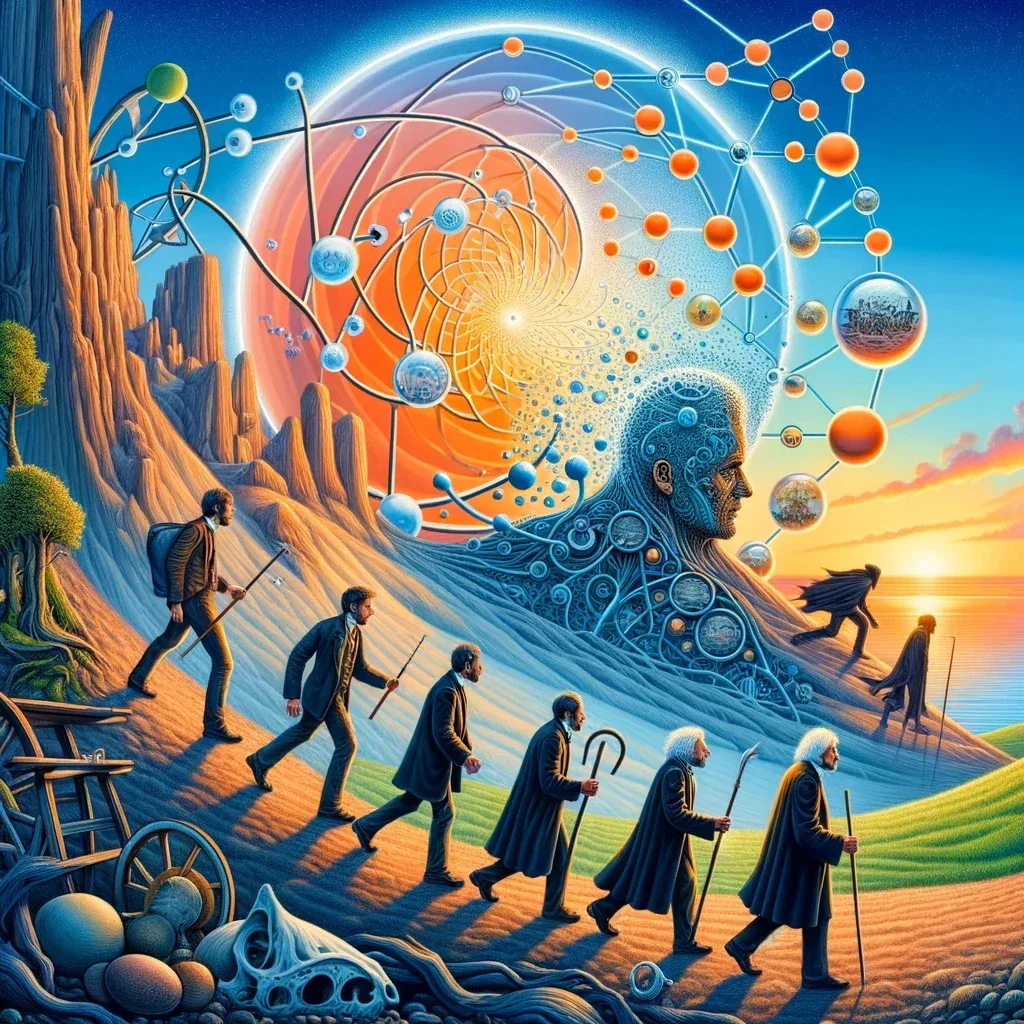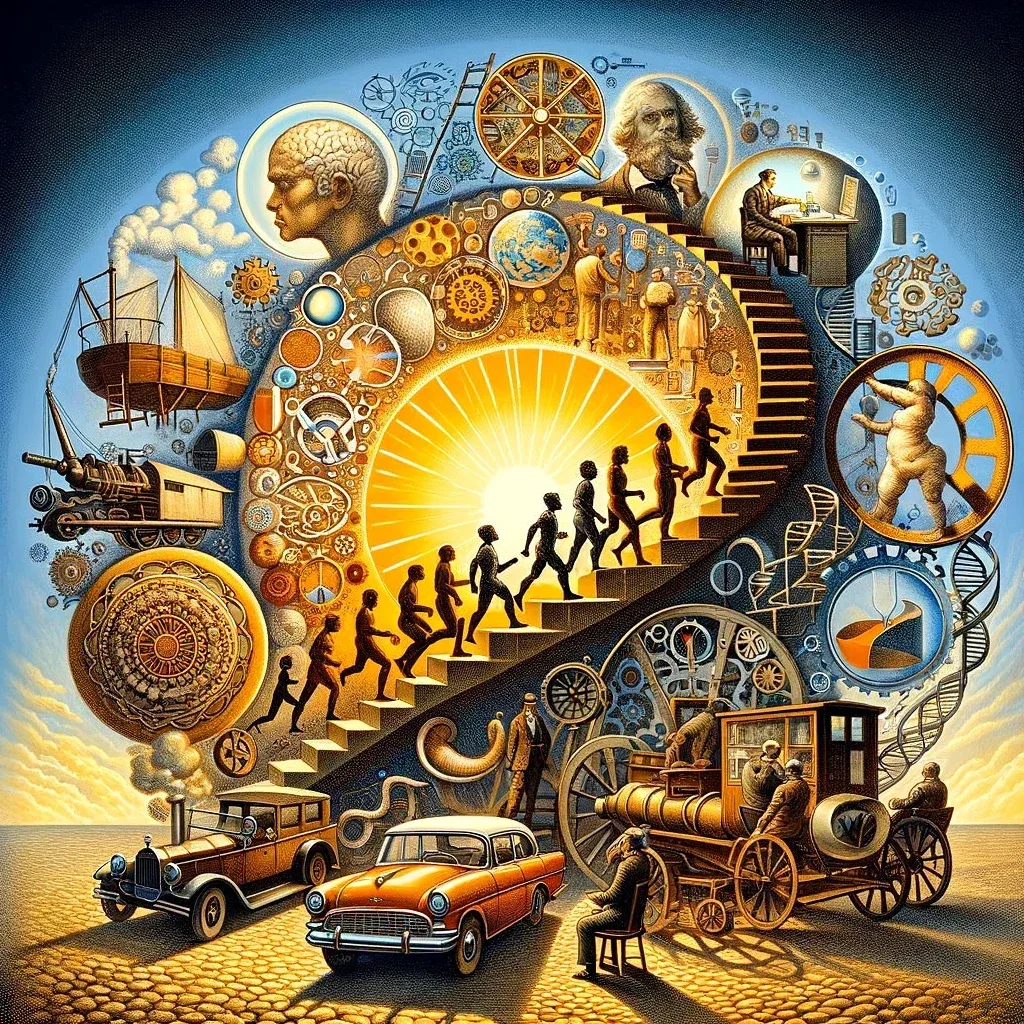The development of science, according to Thomas Kuhn, is a fascinating subject that challenges the traditional understanding of scientific progress. Kuhn, a physicist and philosopher of science, is best known for his influential book “The Structure of Scientific Revolutions,” in which he presents a new view on how science evolves. This article explores Kuhn's concept of scientific development, highlighting its implications and relevance.

Introduction to Thomas Kuhn and His Work

Life and Work
Thomas Kuhn (1922–1996) was an American theoretical physicist and philosopher of science. His most famous work, “The Structure of Scientific Revolutions”, published in 1962, revolutionized the philosophy of science and continues to influence several disciplines.
"The Structure of Scientific Revolutions"
In this work, Kuhn challenges the cumulative view of science, proposing that scientific progress occurs through a series of revolutions rather than linear evolution.
Kuhn's relevance
Kuhn's work is crucial to understanding the dynamic nature of science. It presents concepts such as paradigms, scientific revolutions and normal science, which are essential to understanding how scientific knowledge develops.
Kuhn's Concept of Scientific Development

Normal Science
Kuhn describes “normal science” as a period in which scientists operate under a common paradigm. During this period, research is driven by attempting to elucidate further details and solve puzzles within the existing paradigm.
Scientific Revolutions
“Scientific revolutions” occur when the existing paradigm can no longer explain anomalies and new ideas are needed. This leads to a fundamental shift in paradigm, which Kuhn considers true scientific progress.
Paradigms and Incommensurability
Kuhn introduces the concept of “paradigm” as a conceptual framework that guides scientific research. “Incommensurability” between different paradigms is a key concept, suggesting that different paradigms cannot be directly compared.
Implications of the Kuhn Model

Challenge to Cumulative Progress
Kuhn challenges the idea that scientific knowledge accumulates linearly, suggesting instead that science progresses through paradigm shifts.
The Role of Anomalies
Anomalies, or results that do not fit the current paradigm, play a crucial role in scientific revolutions, forcing scientists to rethink and reformulate fundamental theories.
Science as a Human Activity
Kuhn sees science as an intrinsically human activity, influenced by social, cultural and historical factors, shifting the focus from the mere accumulation of facts to the dynamics of scientific communities.
Criticisms and Debates

Criticisms of Relativism
Some criticisms focus on Kuhn's perception of relativism, arguing that his view could imply that there is no real progress in science.
Debate on Incommensurability
The idea of incommensurability between paradigms has generated intense debate, with some arguing that it makes objective comparison and assessment of scientific progress difficult.
Interdisciplinary Impact
Despite criticism, Kuhn's work profoundly influenced philosophy, sociology, history of science and other disciplines, standing out as a landmark in the study of scientific development.
Conclusion
Thomas Kuhn's concept of the development of science brought a new perspective to understanding how scientific knowledge evolves. His focus on paradigmatic revolutions, rather than a linear accumulation of knowledge, highlights the complex and dynamic nature of science. Although his work has attracted criticism, his influence on the way we think about science and its progress is undeniable.
Frequently Asked Questions about Thomas Kuhn's Concept of Science Development
Below, we present a detailed FAQ to clarify common questions related to the concept of development of science proposed by Thomas Kuhn.

1. What does Thomas Kuhn understand by “normal science”?
2. How does Kuhn describe a “scientific revolution”?
3. What does the term “paradigm” mean in Kuhn?
4. What is the meaning of “incommensurability” between paradigms?
5. How does Kuhn view progress in science?
6. How do anomalies influence scientific development?
7. What is the main criticism of Kuhn's model?
8. What are the social and cultural implications of Kuhn's model?
9. How has Kuhn's model influenced other disciplines?
10. How is Kuhn's concept of paradigm applied in science today?
This FAQ offers detailed insights into Thomas Kuhn's concept of the development of science, covering everything from the definition of key terms to the implications and criticisms of his model, providing an in-depth understanding of his theory.





